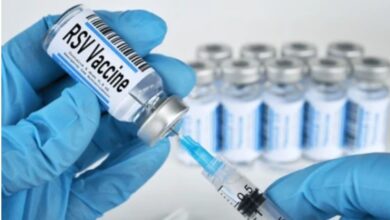COVID-19, VITAMIN D, CANCER, GLP-1’S, HIGH BLOOD PRESSURE

MEDICAL NEWS BRIEFS #29
COVID-19 has a greater effect on kidneys than pneumonia: Natural aging causes a gradual decline in kidney function as measured by eGFR (estimated glomerular filtration rate). Researchers have discovered that patients over age 50, who were ill with SARS-CoV-2 virus had a greater decline in kidney function after the illness than did patients over age 50 experienced after having pneumonia. Those people with COVID-19 who were hospitalized had an even greater decline in eGFR. This was determined by comparing annual blood tests after the illness to those prior to it. COVID-19 patients declined 4.1% to 5.4% for hospitalized patients, while pneumonia patients decline 2.3%. These aren’t startling numbers, but it proves one of the many issues related to the presence of long COVID illness.
Reference: Battacharya S. COVID-19 takes a greater toll on kidneys than pneumonia. Medscape Medical Briefs 2024 December 26.
Vitamin D? It ain’t what was thought! On September 24, 2024, I published an article that stated Vitamin D, once suspected of being responsible for many chronic diseases, was no longer the culprit we once thought! Now comes confirmation of this from the current president of the American Academy of Family Physicians, who recommends patients to “save your money.” His essay comes in response to the U.S. Preventive Services Task Force’s (USPSTF) announcement that they found insufficient evidence that taking supplemental Vitamin D improved outcomes for any illness of medical condition in adults over age 60. Vitamin D is still recommended for frail, osteoporotic, and cognitively impaired/demented elderly patients.
Reference: Lin KW. Vitamin D? Save Your money. Medscape Family Medicine 2025 February.
Coffee and Tea Reduce Cancer Risk: Yes, that’s what it says. “Regular coffee drinking can lower the risk for liver, endometrial (uterine), and colorectal cancers.” Pooled data from more than a dozen studies “showed higher coffee or tea consumption linked to significantly lower risk for multiple types of head and neck cancer.” People drinking 4 cups or more per day of caffeinated coffee had “significantly lower” risk for oral, throat, and laryngeal cancers compared to non-coffee drinkers. One cup/day of decaf coffee also decreases the risk for oral cancer. “Caffeine is not…the mediator.” Polyphenols, plant-based chemical compounds found in fruits, vegetables, nuts, and beverages, may be the “protective” factors. They “exhibit anti-oxidative and anti-cancer properties” that may be the answer and are present in both coffee and tea. More study is needed to verify these assertions.
Reference: Smith AJ. Coffee and Tea Linked to Reduced Cancer Risk, But the Cup is Murky. Medscape Medical News 2025 February 10.
Weight Loss Drugs, GLP-1 Receptor Agonists, Cause Vision Problems: This is a new problem for semaglutide and tirzepatide that adds to the concerns expressed by prescribers of these drugs. Nine patients, who had never taken GLP-1’s nor taken any optically toxic drugs, developed circulatory problems in their optic nerves, the major nerve to the eye responsible for vision. All nine had a history of Type II diabetes, high cholesterol, and high blood pressure. While receiving semaglutide or tirzepatide these serious problems developed. These patients all lost visual acuity and visual field defects, disastrous complications.
Reference: Bhattacharya S. Eye Complications Found with Use of Semaglutide, Tirzepatide. Medscape Medical News 2025 February 7.
High Blood Pressure Lying Down Associated with Greater Risk for All Cardiovascular Outcomes: Blood pressure is usually taken sitting down. However, it should also be taken when supine (lying on your back, face up). Why? Because compared to HBP (>130 systolic over >80 diastolic) sitting, HBP when supine was directly associated with higher risks for coronary artery disease, fatal heart disease, heart failure, stroke, and all-cause mortality. If one’s BP is normal sitting but high lying down, you are at higher risk for all primary cardiovascular disease events. “Supine hypertension warrants greater attention.”
Reference: Rai A. How this easy change to BP reading can reveal hidden risks. Medscape Medical News 2025 January 28.




